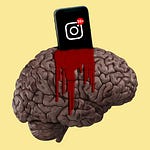
Disclaimer: I must start by stating that nothing I write on these pages will justify this conversation or honour this person’s story. I hope the words do my friends’ experience even a sliver of justice.
I recently met a former colleague for coffee. I arrived early, and shortly after, a car pulled up beside me. I kept waiting, not recognizing her in the car next to me.
Then my phone buzzed with a text: "Here. Parked to your left. I have to go to the washroom. So, I’ll have to do a mad dash in."
I stepped out of the car to greet her and immediately sensed she had been through something life-altering.
The Choreography of Reunion
We walked inside. She headed to the washroom while I ordered a latte for myself and a hot chocolate for her. We settled into a quiet corner of the newly opened café, its morning emptiness providing an unintentional sanctuary for what was to come.
We engaged in the ritual of catching up. I told her about my family, what I had been up to since we last spoke, subconsciously knowing that everything coming out of my mouth seemed frivolous and insignificant, considering what she was likely about to tell me. I asked about her family. All the while, I waited for her to bring up what seemed painfully obvious.
And then it came.
"Nabeela, shortly after we stopped working together, I was diagnosed with breast cancer. I've been on leave since then. I'm doing better. I'm winning. I'm nearing the end of my treatment, but I had to have a double mastectomy, and it has taken me to some dark places, but I am grateful."
I felt tears welling behind my eyes. I leaned in, giving her my full attention, tuning in as if this might be my one and only chance to sit in front of her and hear her story.
The Corporate Executive's Cancer Curriculum
What followed was a master class in resilience, one no leadership retreat could ever deliver. As a senior executive, she was accustomed to developing others, advocating for others, and working for others, and then she unexpectedly became the student in a curriculum no one volunteers for.
Here's what cancer taught her about life and work:
1. The Myth of Independence
"We think we're independent, we think we can manage on our own," she told me. "But when your body is sick, you can't manage alone, no one can. I had a team taking care of me around the clock, from doctors and nurses to family and friends."
In an era where self-sufficiency is celebrated as a professional virtue, her experience reveals a fundamental truth: our carefully constructed facades of independence all crumble when faced with a serious life event.
2. Identity Beyond the Org Chart
She kept telling me how frustrating it was that work is always the primary way we speak about ourselves. It’s the first thing that someone asks when they meet, and it’s the prominent conversation at the dinner table.
“There is more to me than my work, and I have more to talk about than just work.”
But like the people she is frustrated with today, before cancer, work had been her primary source of identity, a common affliction among high-achievers. Her diagnosis forced a reckoning with the question: Who am I when I can't be the professional I've always been?
"I've learned to define myself in so many more ways than my work," she said, with a level of self-assurance that suggested this wasn't merely philosophy but hard-won wisdom.
Nothing she said was lost on me.
Instead, each word was like a hyper tunnel to my heart because it often takes being forcibly removed from our professional roles to recognize how unhealthily we've fused our identities to them.
3. The Orchestra of Care
She also shared something with me that I didn’t expect, as she was going through chemo, sitting in that chair getting toxins injected into her body, she also spent hours observing the health care workers around her.
In those observations, she noticed something that is often lost in the corporate world: dependence.
Providing treatment to cancer patients is highly prescribed, requires a lot of skill, and the risks are high. Yet despite all the regular stuff that healthcare workers deal with (call-ins, understaffing, overwork), never did a healthcare worker make her feel like a number. She never saw ego take precedence over care or see the healthcare workers rely solely on themselves. Her observations about healthcare workers contained profound implications for corporate culture.
She described a choreographed orchestra where "no one works alone." There is “structure” and “autonomy,” and she could see the need for efficiency and productivity. However, efficiency still felt human, and the need for productivity never superseded the need to treat people kindly.
The contrast with typical corporate environments was striking.
While we celebrate individual achievement and competition, these healthcare professionals demonstrate how actual effectiveness emerges from collective, ego-free coordination that puts the person at the centre.
4. The Pressure to Return
Perhaps most troubling was her admission about nearly returning to work prematurely. "The social, organizational, and internal pressure to return was strong," she confessed. "I almost pushed myself before I was ready because I felt like I needed to go back and contribute."
We talked about the intoxicating pull of feeling productive, of having control, of feeling like we are contributing and that battling cancer didn’t feel like enough- “my body is weak but my mind is strong, I thought I could go back to work but then I faced a complication in my treatment.”
Only a medical complication prevented her premature return—a sobering reminder that even in the face of life-threatening illness, many professionals require external permission to prioritize wellbeing over workplace expectations.
What that experience helped her realize is that even getting cancer and going through chemotherapy wasn’t enough to stop her from prioritizing her work over her health.
"I thought I had learned important lessons about taking care of myself and boundaries," she said, "but I still had a lot to learn."
Missed Signals: The Warning Signs We Ignore
As our conversation deepened, I felt a need to ask two selfish questions, one about the signs she might have seen prior to being diagnosed and another about how faith played a role in her journey. So, I asked her: "Were there signs your body was signaling you before the diagnosis? How did you find out you had cancer?"
Her answer should be required reading for every professional who's ever dismissed fatigue as "just stress" or normalized pain as part of the job:
“There was blood in my urine, but it was intermittent, so I didn’t take it seriously. I am not the type of person who googles something and gets freaked out about it, so I just ignored it, and I didn’t give it a second thought.”
“I was also just exhausted; there were days when I would get home after the work week and just have to lie in bed. It’s fascinating how I paid so much attention to some things, too much attention and then ignored the signals my body was sending me. What I’ve come to understand is that our bodies are remarkable systems of intelligence, communicating through clear signals when balance is disturbed. These physical messages—whether subtle or pronounced—serve as vital information from our inner landscape.”
I found myself mentally cataloging the dismissed symptoms I’ve heard so many people describe over the years as she spoke—the headaches we attribute to screen time, the insomnia we blame on caffeine consumption, the persistent exhaustion we’ve accepted as the price of success.
By developing the wisdom to truly listen to these communications, we honor our body's sophisticated monitoring systems and become active participants in our wellbeing rather than distant inhabitants of our most intimate home.
The Faith Factor: Finding Meaning in Crisis
Selfish as it might seem, I needed to know if faith had played the same pivotal role in her recovery that it had in my burnout journey. "How did faith show up for you during treatment?" I asked.
Her response transcended religious differences, reaching into the universal human need for meaning beyond quarterly results:
Faith became her nightshift support system, she said. "I had a team of people helping me around the clock, but at 2 am when I woke up in pain and everyone was asleep, I didn’t want to wake them. Instead, I just lay there in the dark, talking to God. There were some dark moments, and the night takes you to places you wouldn’t usually go to in the day.”
She described a profound relationship with God, one where she knew God was in charge and that He had a plan – one that she relied on. She described how her symptoms improved in medically unexplainable ways and how she knew that was God sending her a sign to continue her treatment, to keep going. Her belief in a higher power, in a higher being, helped her make sense of it all and gave her hope.
So many of us compartmentalize our lives: work mode, family mode, faith mode. But when something like cancer shows up, it demolishes those artificial boundaries. When you're staring at mortality, you realize that fragmentation itself is the problem. Our lives are multi-dimensional and integrated, and trying to bifurcate them or suppress parts of ourselves no longer makes sense.
As professionals at work, we would likely never get to this conversation about faith, hope, life, and mortality. Still, in this coffee shop with my latte and her hot chocolate, it felt like not talking about faith would have left a critical piece of her journey out of the conversation.
Lessons for the Rest of Us
Must we all face such extreme disruptions to recalibrate our relationship with work? Her journey offers insights for those fortunate enough to have the choice still:
Question your independence narrative. Who would constitute your "team around the clock" if a crisis struck? Are you nurturing those relationships now, or perpetually postponing them for after the next deadline?
Diversify your identity portfolio. If your professional role vanished tomorrow, what would remain? Start investing in the non-work dimensions of your selfhood before circumstances force a fire sale.
Reframe vulnerability as strength. The willingness to acknowledge limitations and accept help isn't weakness, it's the prerequisite for sustainable success.
Recognize the warning signs. Are you dismissing physical symptoms that deserve attention? What bodily whispers are you ignoring while waiting for a scream? Give yourself permission to investigate subtle changes before they become medical emergencies.
Integrate your core values and beliefs. What principles guide your life outside the office? How might acknowledging these values and beliefs, rather than compartmentalizing them, transform your life? How might your life evolve if you embraced them fully?
As we finished our drinks, I realized that our coffee shop reunion wasn't just catching up. It was a recalibration of perspective, an affirmation that these are also the stories we need to tell, a confirmation that her story and so many others like hers can be a lighthouse for the countless people struggling with something similar, a reminder that the most important measurements of success in our lives won't be found on any quarterly review.
The person across from me sat not just a person battling cancer, a survivor, but a messenger from life's frontlines, bearing wisdom that many of us learn too late: that work, no matter how meaningful or well-compensated, is just one instrument in the orchestra of a well-lived life.
This article is dedicated to all professionals navigating serious illness while balancing career expectations. Your journey matters, and your insights are invaluable to those of us still defining success in too-narrow terms.
As always, take care of yourself and those around you.
In Partnership,
Nabeela
Like, Share & Comment!
If you found this post helpful and feel so inclined, please hit the ❤️ button at the top or bottom of this email to help others discover Re-Imagine Success.
And.. don’t be shy! Please let me know your thoughts by commenting.
Your support means a lot!















Share this post